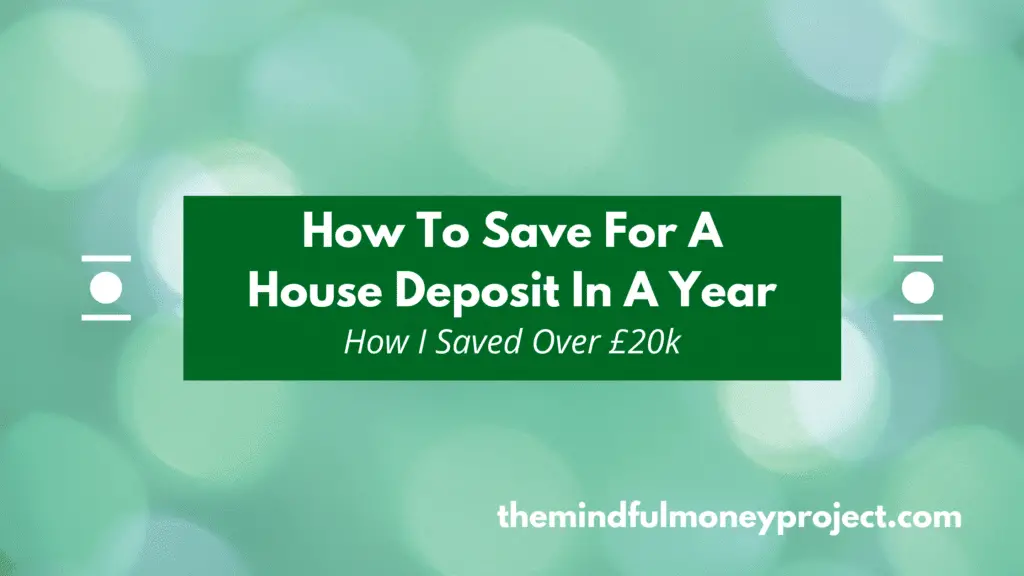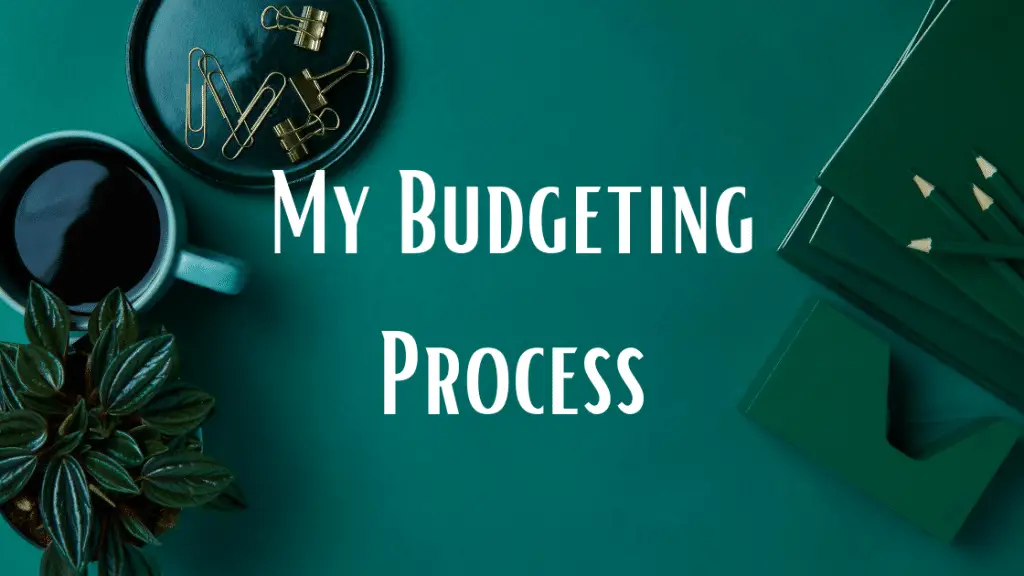Your 20s are a fantastic period of time. You’ve finished uni and, hopefully, put your skint student days behind you by landing your first full-time job. You’re finding your feet in a career and enjoying the new disposable income you’ve got. I’ve still got a few years left of my 20s, but a conversation yesterday with a friend has reminded me of the common personal finance mistakes young professionals make in their 20s.
I’m guilty of some of these just as much as the next, but if you’re in your early 20s just starting out in the working world I hope you can pick up some tips on what to do to set your 20s up for maximum financial success.
1. Not setting a budget
A budget has a bit of a reputation problem. People tend to think of it as some kind of suppressive overlord that takes time to administer and always results in less fun.
I’m here to tell you that doesn’t need to be the case at all.
A budget is essentially a spending plan. This spending plan should help to make sure your needs are covered, but that you’ve got adequate money supporting your wants too, as well as looking after your future you (saving and investing for the future).
Now, the reality is that on a starting salary you’re probably going to have more wants and needs than you have income. And indeed at any stage of income, there have to be trade-offs.
This is why running through a budget is so important. It allows you to be intentional with where these trade-offs come in.
For me, I absolutely love going out with mates to the pub and so wanted to make sure I had enough of a budget for that to allow me to continue doing it, but in order to stay within my means I had to cut back on other areas. Considering I was never spending much time there, I would always make sure I had the smallest room in the house-share (and consequently the lowest monthly rent), as well as keeping my monthly subscriptions down on stuff like phone bills, Netflix and Amazon Prime.
Your version of a budget will be unique to you dependent on your priorities. For example, you might be the reverse of me and love to have a really nice place that you live in, but cut costs by not going out to drink/eat as much and instead have friends round for dinner.
A budget should allow you to put resources into the things you care about, whilst giving you the confidence to know that your money is being managed intentionally.
Your budget should:
- make sure you are living within your means
- ensure your “needs” are met (shelter, food etc)
- provide resources for some specific “wants” – this is where there are trade-offs though as not everyone can afford everything – you have to choose wisely
If you managed to get through university without even attempting a budget, then fair play. If I didn’t budget my money and plan ahead in uni I would have had to have dropped out due to the high cost of living in London.
Learning to budget, and work out how to effectively stick to it, is such an important skill and like with any skill development it takes time and practice. The main thing is to just start.
2. Not being intentional with spending
This is closely related to not having a budget.
But being intentional with your spending brings a lot of mindfulness with how you are spending your money. It is easy to just mindlessly start spending your money based on what others want you to do, or what others think you should look like, or be like, or how you should behave etc.
There are so many external pressures all telling you to look like one thing or do another.
But by setting yourself a budget and purposefully identifying the things that matter to you, you can ignore all of the other pressures. You know that if you stick to your budget, and saving/investing your monthly personal profit, that you’ll be in a position of financial security and happiness, whilst your peers may succumb to the pressures of financial mismanagement such as high debt.
3. Not building a buffer
Another one I’m guilty of.
Everyone should have an emergency fund.
How big should my emergency fund be? Ideally 3-6 months’ worth of expenses.
I quit my first job out of university because of its toll on my mental health. It was the best choice for me personally, but financially it was risky.
At the time, I didn’t have enough savings to give me any buffer, let alone a decent one, and so I had only the 1 month notice period to find a job.
Luckily (and I want to stress luckily) I was able to find another job within that period so I didn’t have a delay in income (or a significant drop in income). But if this was in harsher economic conditions where there are fewer jobs and more applicants, it could have been a different story.
Even though you may feel like “it won’t happen to you”, it might. Build up an emergency fund as a first priority when you start earning out of uni. This could be considered “F*** you money”, it opens up options to leave a job, to leave a partner etc if you need.
4. Not investing for the future
Another personal finance tool that has an image problem; investing. People commonly think that it isn’t “for the likes of them”, or that you need some qualifications and general mathematical wizardry to get involved.
Investing isn’t as hard as you think it is.
You don’t need to spend all day studying the markets. You don’t need to research companies in-depth and understand their industry trends. You don’t need to have thousands of pounds to begin. And you don’t need to pay an investment advisor to do it for you either.
All you need to do is set up a stocks & shares ISA (with a provider like Hargreaves Lansdown or Nutmeg) and set up an automatic monthly transfer to invest in a low cost diversified index-tracker fund that gives you exposure to global stocks markets and different asset classes (such as stocks, bonds, property etc). This is so accessible, and you can start investing monthly from as low as £25 per month.
Investing is the key to growing your wealth and securing financial happiness.
5. Waiting until “the next thing” is done to start investing
I was guilty of this.
I would always have a short-term goal that I would be saving for, and as such, I was always in the mindset of “I’ll wait until I’ve saved for x, and then I’ll start investing”.
This was borne out of impatience. I wanted to get to my short-term financial goal as quickly as possible.
But the earlier you can start investing, the better.
I still find myself fighting the urge of pushing all of my monthly personal profit (my monthly savings) into my short-term financial goals (at the moment I’m saving furiously for a house deposit), but I need to remember to be mindful to funnel some savings into longer-term investments in order to give compounding a chance to work its magic.
6. Overstretching
I don’t mean literally stretching too much. Hell, whilst I’m at it I’ll include another tip that I wish I did more of when I was in my early 20s; stretch more.
But back to it. I mean overstretching financially.
It is so easy to be swept up in what your peers are doing or what your family’s expectations are of you, that you find yourself making some suspect financial decisions.
It all links back to #1. If you have a budget, you can be more wary of when you’re being “led astray”.
Just because your friends are getting nice cars on monthly payments, does it mean that you have to? Not if you know that the extra £200-400 you were paying for the car could be invested instead.
Just because your family expect you to get a big house to show off how well you are doing, does that mean you need to? Probably not.
Try to focus back in on your budget and being mindful with your spending choices will help you to prioritise what’s important and what’s not, rather than just going with the crowd and other people’s expectations of you.
7. Using credit
Another one I was guilty of. When you’re first starting out, the chances are that your personal profit (your monthly income minus your monthly expenses) is going to be quite slim. It could be £50-100 per month that you’re funnelling into savings to build up an emergency fund.
It therefore means you don’t have much of an in-built buffer to absorb any budget misses.
£50-100 could easily be burned up in one night that went too far! Or a holiday that you probably shouldn’t go on but don’t want to miss out with your friends.
Be very wary of using credit. If you need to pay for something on credit, take a step back and set yourself a target of saving it up in cash with your monthly personal profit. Once you have the cash saved, buy it.
Not only will this give you time to take the emotional pull out of the buying equation (you might decide once you have the cash that you no longer want it), but it will also stop you from living artificially beyond your means. Building up debt can be very damaging, very expensive and very difficult to get out of, so try to avoid getting into it in the first place.
How to improve your personal finances as a young working professional
These steps are applicable to anyone, but as a young working professional this can help provide you strong foundations that you can build from;
- Set a budget and spend mindfully and intentionally, ensuring you make a personal profit
- Build up an emergency fund, ain’t nobody know when that life slap is’a coming
- Pay off debt if you have any, or better yet don’t incur any – it’ll just shackle you down and rob you of future spending
- Invest for the future and leave it invested, let compounding do its thing
You can read more about my progress saving for a house deposit here, which I managed to achieve in one year.
Conclusion
It is easy to get caught up in the trappings of a new found level of disposable income when you’ve come out of uni and landed your first professional job. You should definitely enjoy it, but be mindful of how your personal finances can enhance or detract from that experience. Learn to manage your money effectively and intentionally, and you will be engineering some strong financial foundations. More resources = more options.
Do you agree with the 7 mistakes I’ve highlighted here? Comment below if you think I’ve missed a biggie.
Other posts you might enjoy:
Wealthify vs Hargreaves Lansdown
Investing in the stock market used to be an inaccessible world full of jargon, stockbrokers…
Does PayPal Credit Affect Credit Score?
Even though consumer credit, in general, has shrunk in the UK since the start of…
How to Budget Salary Wisely – 4 Methods To Make You Budget Wise!
Do you always find yourself running out of cash at the end of the month?…
How to cancel The Economist subscription and stop it from auto-renewing
I always harp on about giving your finances a shot in the arm by cutting…
How To Save For A House Deposit In A Year (Whilst Renting In The UK)
As a fellow first time buyer, I’m sure you know the struggle already. We really…
How To Stick To Your Budget When Nothing Works
We’ve all been there, built a kick-ass budget but you’re unable to stick to it….
Budget Like A Boss – What Does My Budgeting Process Look Like?
If you’ve decided you need a budget, most people tend to advise a very similar…
Best Investment Apps for Beginners UK: Get Savvy And Build Wealth With These
In our list below, you’ll find the best investment apps for beginners UK. They cover…
Snoop vs Money Dashboard
An app has the power to simplify your life. Especially your finances. Rather than cracking…











Pingback: How I Paid Off £2,000 Debt and Saved £9,000 In Less Than One Year | The Mindful Money Project